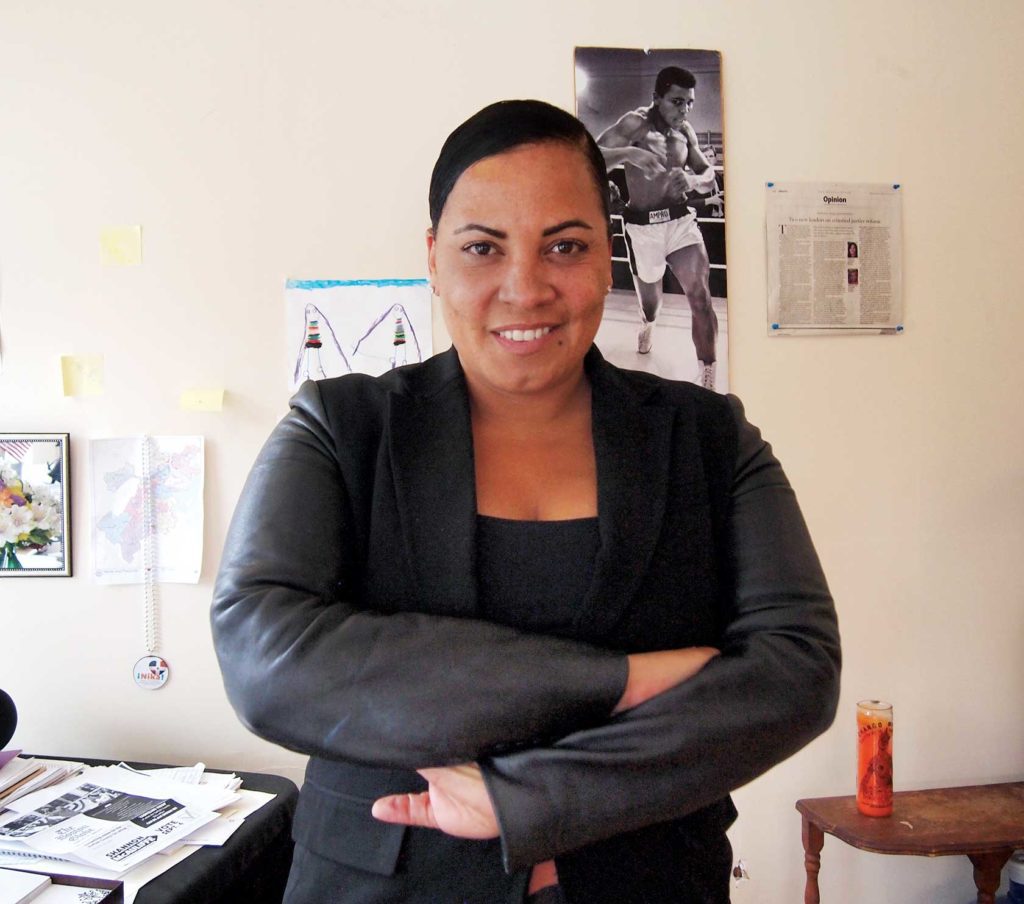
Suffolk County District Attorney Rachael Rollins made history last week as the first Black woman to become the United States Attorney for the District of Massachusetts.
Following staunch opposition from Republicans who branded Rollins as a radical “pro-criminal” nominee, and a divisive hearing in September, Rollins ultimately was confirmed by the Senate on Wednesday.
“I’m deeply honored and humbled by the opportunity to serve my community, my Commonwealth and my country as the next United States Attorney for the District of Massachusetts,” she said in a statement. “Every policy and initiative that I have put in place as Suffolk County District Attorney has been designed to improve the safety and well-being of the communities I serve, to improve the public’s trust in law enforcement and our courts and to improve the fairness and equity of the criminal legal system.”
During her three-year tenure as district attorney, Rollins has worked toward more progressive criminal justice reform, including a refusal to prosecute nonviolent misdemeanors “more indicative of mental illness, substance use disorder, food or housing insecurity, poverty or homelessness than of criminal intent.” In implementing this change to her office, she made it a goal to target violent crimes — a goal that has proven successful.
Reporting by the Boston Globe on data from the Boston Police Department shows that, as of Dec. 7, 2021, “Part 1” crimes which include homicides, rapes, aggravated assaults, robberies, larcenies, burglaries and auto thefts, have dropped 14% based on five-year averages.
Rollins’ office has also credited this approach with the ability to allocate more attention to cold cases, resulting in indictments in three homicides that occurred during the 1980s and 1990s.
“I’m incredibly proud of the work every member of my office has done to achieve these goals, and I’m grateful to have had the opportunity to lead an office of such dedicated, compassionate and talented professionals. I look forward to bringing these data-driven, evidenced-based approaches and a heightened emphasis on culturally competent, trauma-informed victim services to the United States Attorney’s Office for the District of Massachusetts.”
However, not all have looked upon Rollins’ work with a favorable lens. Senate Republicans, who traditionally join their colleagues in a routine unanimous approval of presidential nominees to U.S. attorney positions, have characterized the Rollins’ policy of non-prosecution as soft on crime.
“Our responsibility as a United States Senator is to ensure that we do not confirm pro-criminal activists into the office of United States Attorney,” Arkansas Senator Tom Cotton said in September.
In the lead-up to Wednesday’s vote, 27 of the attorneys in Rollins’ cohort were approved by unanimous consent. Her approval, on the other hand, was called to a roll-call vote and split down party lines in a 50-50 tie, broken by Vice President Kamala Harris.
Among those that do support her approach to criminal justice reform and laud her track record is Ivan Espinoza-Madrigal, executive director of Lawyers for Civil Rights Boston.
“This is a historic victory for the state of Massachusetts, and we look forward to seeing her leadership in that important office. She has led important reforms at the county level, and we look forward to seeing those much-needed reforms expanded statewide through her leadership in the U.S. Attorney’s office,” Espinoza-Madrigal told the Banner.
He added that her experience makes Rollins well-equipped for challenges ahead.
“The U.S. Attorney’s office has a very broad mandate, including civil rights investigations and public accountability matters. All of these areas will benefit from the leadership of U.S. Attorney Rollins,” Espinoza-Madrigal said.
Those challenges could include, according to the Globe, an investigation into the Massachusetts Department of Correction’s handling of inmate mental health and corrections officers’ use of force, probes into a COVID-19 outbreak at the Holyoke Soldier’s Home and into Boston Police Department overtime abuse, or a look into Boston Public Schools’ improper handling of instruction for non-English speaking students.
In the coming weeks, attention will turn to whom Governor Charlie Baker will choose as Rollins’ replacement. Rollins has requested that Baker pick her first assistant, Daniel Mulhern, to fill the role.
Carol Rose, executive director of the ACLU Massachusetts said she hopes whoever is chosen will continue Rollins’ work, including efforts to dismiss thousands of cases “tainted by Massachusetts’ drug lab scandals.”
“The power of district attorneys should be used to further racial justice and create healthier communities,” Rose said in a statement. “Governor Baker must appoint a successor who will continue the work to transform our legal system from one rooted in punishment and retribution to one that centers human dignity and public health.”






